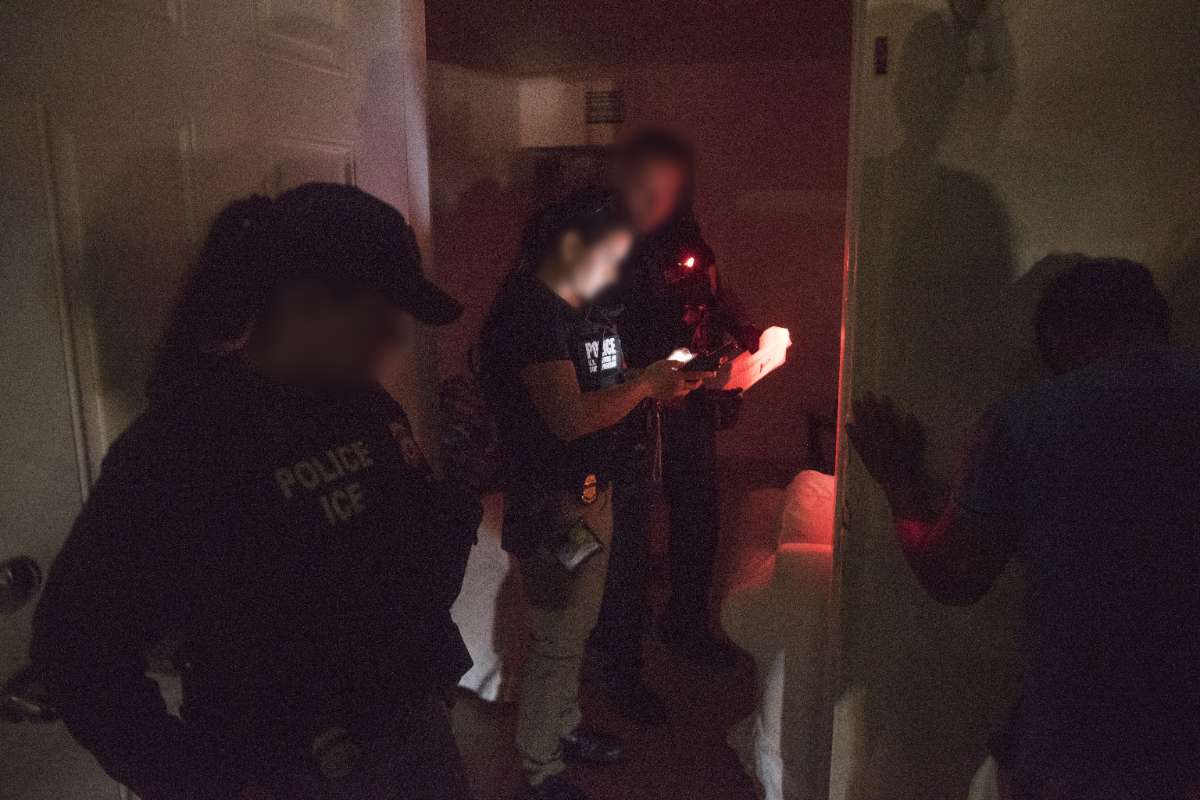Key Takeaways
• Rahima Begum was mistakenly deported to Bangladesh in June 2025 during Assam’s strict immigration crackdown.
• Operation Push-back speeds deportations, bypassing usual legal appeals and causing risks of wrongful removals.
• By end 2024, Assam identified 165,531 illegal immigrants; over 30,100 Bangladeshis deported so far.
On June 1, 2025, a 50-year-old woman named Rahima Begum from Assam found herself at the center of a troubling mistake. She was mistakenly deported to Bangladesh 🇧🇩 during a major immigration crackdown in Assam. This incident, which ended with her return to Assam, has drawn attention to the risks and consequences of the state’s new, faster approach to deporting people suspected of being illegal immigrants. The story of Rahima Begum is not just about one woman—it highlights the complex, often painful realities faced by thousands living in Assam and the broader region.
What Happened to Rahima Begum?

Rahima Begum was declared a foreigner by a Foreigners Tribunal (FT) in Assam. These tribunals are special courts that decide if someone is an Indian citizen or an illegal immigrant. After the tribunal’s decision, Rahima was detained and then deported to Bangladesh 🇧🇩 as part of a new, tougher policy called “Operation Push-back.” However, after her deportation, officials realized a mistake had been made. They reviewed her case, worked with Bangladeshi authorities, and arranged for her return to Assam. Rahima’s ordeal shows how quickly things can go wrong when legal checks are rushed or skipped.
Why Is Assam Cracking Down on Immigration?
Assam has a long history of tension over immigration, especially from neighboring Bangladesh 🇧🇩. Many people in Assam believe that large numbers of migrants have entered the state illegally over the years, changing its culture and politics. The Assam Accord of 1985 set March 24, 1971, as the cutoff date for legal citizenship. Anyone who entered Assam after that date was to be considered a foreigner and could be deported.
To enforce this, Assam uses Foreigners Tribunals to decide who is a citizen and who is not. But the process has always been slow, with many cases stuck in court for years. In recent months, the government has changed its approach, aiming to speed up deportations and show that it is serious about tackling illegal immigration.
Operation Push-back: A New, Faster Approach
In April 2025, Assam and central government authorities launched “Operation Push-back.” This new policy allows for the immediate deportation of people suspected of being illegal immigrants, often skipping the usual court appeals and legal reviews. The goal is to remove people quickly, but this speed has led to mistakes like the one involving Rahima Begum.
The Union Ministry of Home Affairs also issued a directive in May 2025, telling all states and Union Territories to verify suspected illegal immigrants from Bangladesh 🇧🇩 and Myanmar within 30 days. If someone could not prove their citizenship, they would be deported. New detention centers and special task forces were set up to make this process even faster.
A new law, the Immigration and Foreigners Bill, 2025, was also introduced. This law replaces older rules, brings in biometric checks (like fingerprints and eye scans), and punishes anyone who helps illegal immigrants enter the country. The aim is to make enforcement stricter and deportations quicker.
The Numbers: How Big Is the Issue?
- Identified Illegal Immigrants in Assam: By the end of 2024, Assam had identified 1,65,531 people as illegal immigrants.
- Deportations: More than 30,100 people from Bangladesh 🇧🇩 have been deported from Assam so far. Since Operation Push-back started in April 2025, 742 people have been deported across India.
- Recent Detentions: In late May 2025, Assam Police detained over 50 people suspected of being illegal immigrants in just one operation.
These numbers show how large and urgent the issue is for the government. But they also raise questions about how many people might be wrongly caught up in these actions.
How Does the Deportation Process Work Now?
The current process for identifying and deporting suspected illegal immigrants in Assam works as follows:
- Identification: Police and officials look for people they believe might be illegal immigrants. They check documents and compare names with the National Register of Citizens (NRC).
- Tribunal Declaration: Suspected individuals are brought before a Foreigners Tribunal, which decides if they are citizens or foreigners.
- Detention: If the tribunal declares someone a foreigner, that person is detained in a special center.
- Deportation: Under Operation Push-back, many people are now deported immediately, often through border handovers, without waiting for court appeals.
- Repatriation (if a mistake is found): If officials later realize someone was wrongly deported, they work with Bangladeshi authorities to bring the person back, as happened with Rahima Begum.
For more details on the official process and updates, readers can visit the Ministry of Home Affairs website.
Who Are the Key Players?
- Assam Chief Minister Himanta Biswa Sarma: He has strongly supported the new push-back policy, saying, “We have now decided we will not go through the legal process… we will push them. This pushing back is a new phenomenon.”
- Union Home Minister Amit Shah: He has called illegal immigration a threat to national security and has pushed for strict enforcement and quick deportations.
- Foreigners Tribunals: These bodies still play a central role in declaring people as foreigners, but their decisions are now being acted on much more quickly.
What Are the Different Views?
Government Perspective
The government believes that the crackdown and new laws are needed to protect national security and keep Assam’s population stable. Officials say that illegal immigration has changed Assam’s culture and politics and that quick action is needed to fix the problem.
Human Rights Groups
Many human rights groups are worried about the new approach. They say that skipping legal steps can lead to mistakes and that people’s rights are being ignored. They also point out that the crackdown seems to target minorities, especially Muslims, more than others.
Families and Communities
Families of those detained or deported often feel shocked and helpless. In some cases, people are deported even while their legal appeals are still being heard in higher courts. This leaves families divided and uncertain about the future.
Bangladesh 🇧🇩 Government
The current interim government in Bangladesh 🇧🇩 has not always cooperated with India’s deportation efforts. This makes it harder to verify people’s identities and arrange for their return if a mistake is made.
What Are the Risks and Concerns?
Faster Deportations, More Mistakes
The new, faster process has led to more people being deported, but it has also increased the risk of errors. Rahima Begum’s case is a clear example. When legal checks are skipped or rushed, innocent people can be caught up in the system and sent away from their homes.
Legal and Humanitarian Worries
Critics say that bypassing legal procedures can lead to wrongful deportations and violations of basic rights. People who have lived in Assam for decades, sometimes their whole lives, can suddenly find themselves declared foreigners and sent to a country they may not even know.
Impact on Families
When someone is deported, their family is often left behind, facing uncertainty and distress. Children may be separated from parents, and families may lose their main source of income. In some cases, appeals are still pending in court, but deportations go ahead anyway.
Targeting of Minorities
There are concerns that the crackdown is affecting certain groups more than others, especially Muslims. Human rights groups warn that this could lead to discrimination and further social tensions.
What Do the Experts Say?
Legal Experts
Legal experts warn that skipping judicial review (court checks) increases the risk of mistakes and can lead to criticism from other countries. They say that everyone should have a fair chance to prove their citizenship before being deported.
Demographic Analysts
Analysts who study population trends say that years of weak enforcement have changed Assam’s population, leading to political and social tensions. They believe that the new policies are a response to these changes, but warn that moving too quickly can cause new problems.
What Does the Future Hold?
Continued Crackdown
The government is expected to keep up, or even increase, its efforts to find and deport illegal immigrants. Other states may follow Assam’s example and adopt similar policies.
More Mistakes Possible
As the process speeds up, there is a real risk that more people will be wrongly deported. Unless better safeguards are put in place, cases like Rahima Begum’s could become more common.
Legal Challenges
Many people are challenging the new policies in court. The outcomes of these cases could shape how the laws are applied in the future and whether people’s rights are better protected.
What Should Affected People Do?
If you or someone you know is affected by these policies in Assam, here are some steps to consider:
- Check Your Documents: Make sure you have all necessary documents proving your citizenship, such as birth certificates, voter ID cards, and NRC records.
- Contact Authorities: If someone is detained or declared a foreigner, contact the Assam Police or the Foreigners Tribunal for information about the case. The Assam Police website provides contact details and updates.
- Seek Legal Help: If you believe a mistake has been made, seek help from a lawyer or a legal aid group. Appeals can sometimes be made to higher courts.
- Stay Informed: Follow updates from the Ministry of Home Affairs and other official sources to understand your rights and any changes in the law.
Official Resources
- Assam Police: For questions about detentions and deportations, visit police.assam.gov.in.
- Foreigners Tribunals, Assam: For case status and appeals, contact the relevant tribunal office.
- Ministry of Home Affairs: For policy updates, visit mha.gov.in.
The Bigger Picture: What Does Rahima Begum’s Case Teach Us?
Rahima Begum’s mistaken deportation and eventual return to Assam show both the urgency and the dangers of the new immigration crackdown. The government’s push-back policy has made deportations faster, but it has also made mistakes more likely. As reported by VisaVerge.com, these errors can have serious consequences for individuals and families, and they raise important questions about fairness and justice.
The situation in Assam is changing quickly. The government wants to show that it is serious about stopping illegal immigration, but it must also make sure that innocent people are not hurt in the process. As legal, political, and human rights challenges continue, the story of Rahima Begum is a reminder that immigration policies affect real people—and that every effort must be made to protect their rights and dignity.
Takeaways and Next Steps
- For Individuals: Keep your documents safe, know your rights, and seek legal help if needed.
- For Families: Stay connected and informed, and support each other during uncertain times.
- For Policymakers: Balance the need for security with the need for fairness and accuracy.
- For Human Rights Groups: Continue to monitor and report on the impact of these policies, especially on vulnerable groups.
The case of Rahima Begum is not just a single mistake—it is a warning about what can happen when speed is valued over care. As Assam and India move forward with their immigration policies, it is vital to remember that every decision affects real lives, and that justice must never be sacrificed for the sake of quick results.
Learn Today
Foreigners Tribunal → Special courts deciding if someone is an Indian citizen or illegal immigrant in Assam.
Operation Push-back → Government policy that speeds deportations by skipping usual legal reviews and appeals.
Immigration and Foreigners Bill 2025 → New law introducing biometric checks and harsher penalties for illegal immigration in India.
Deportation → Official removal of a person from a country due to illegal immigration status.
National Register of Citizens (NRC) → Official list used to verify Indian citizenship and identify illegal immigrants.
This Article in a Nutshell
Rahima Begum’s wrongful deportation exposes flaws in Assam’s fast immigration crackdown. Operation Push-back accelerates deportations but increases mistakes risking innocent people’s rights and splitting families amid political and legal tensions in the region.
— By VisaVerge.com








